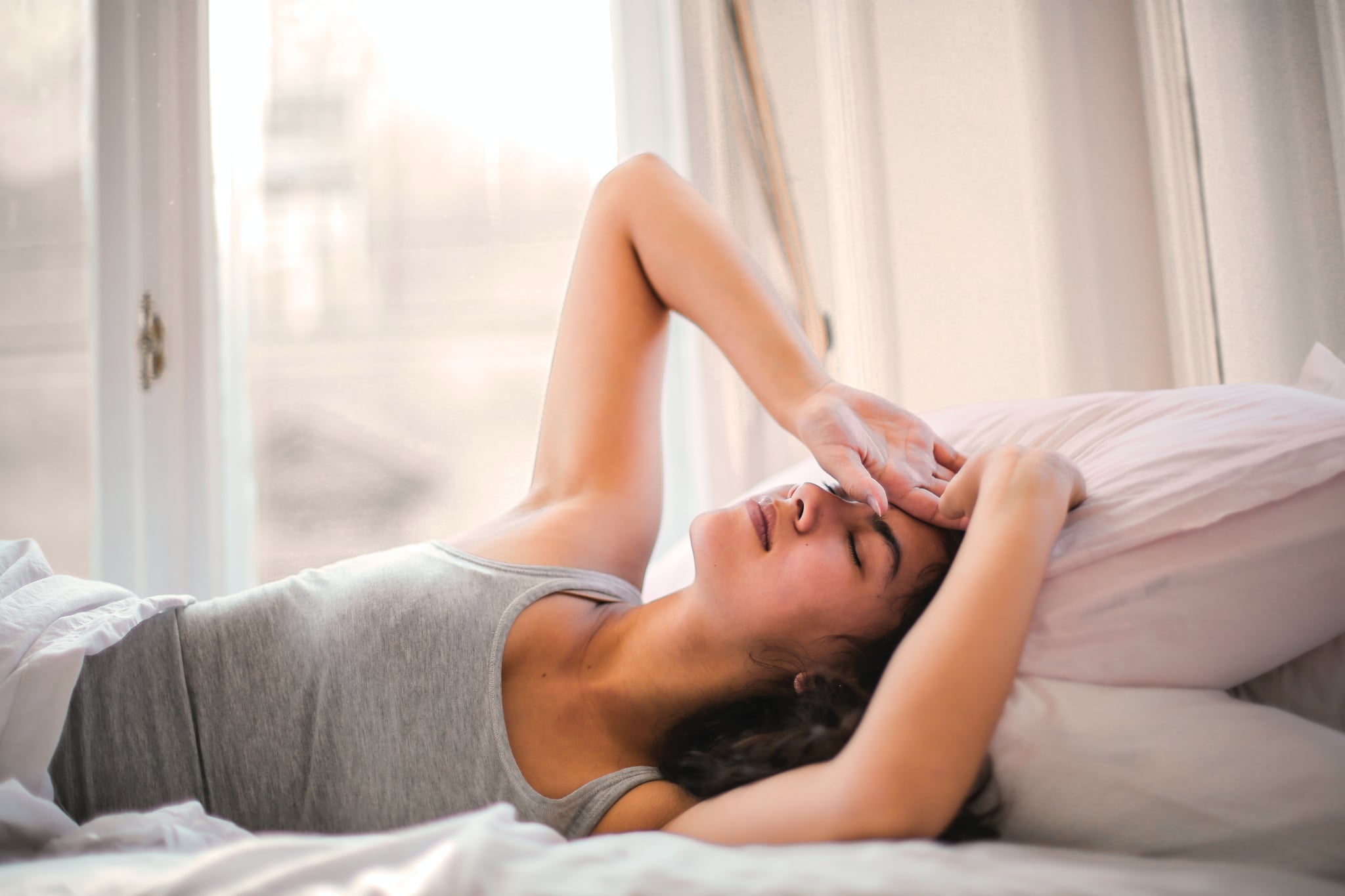
Editor’s Note: We at POPSUGAR recognize that people of many genders and identities have female sex organs, not just those who are women. For this particular story, experts generally referred to people with female sex organs who menstruate as women.
As if my hormonal acne isn’t enough, I get the worst bouts of insomnia right before my period. It’s usually what clues me into the fact that my cycle is about to begin.
Curious as to whether premenstrual syndrome (PMS) can actually affect sleep or if my monthly insomnia is a random coincidence, I reached out to an ob-gyn and a sleep expert for more information.
According to Julie Levitt, MD, a board-certified ob-gyn at the Women’s Group of Northwestern, insomnia caused by the menstrual cycle could be a possibility because of the rise of progesterone levels in the latter half of the menstrual cycle after ovulation.
At the onset the menstrual cycle, progesterone and estrogen levels both drop, Dr. Levitt explained, which is what triggers bleeding. “Some women experience the effect of this as well on their ability to get to sleep and stay asleep.”
It’s been observed in scientific studies, too. A study performed in 2014 actually found a link between sleep fragmentation and the luteal phase of the menstrual cycle, or when PMS occurs.
The experience of sleep disturbances surrounding the time of the menstrual cycle has also been self-reported in the 2007 National Sleep Foundation Sleep in America survey. Meredith Broderick, MD, a triple-board-certified sleep doctor and neurologist, pointed to the survey and said that 25 to 33 percent of menstruating women surveyed reported sleep disturbances before or during their periods.
“It also found that women who had more severe premenstrual symptoms (PMS) had insomnia or daytime sleepiness. The science evaluating more objective measures depends on the population,” Dr. Broderick said. “For example are you studying young women, women in mid-life, women with ‘normal’ menstrual cycles, or those with PMS or PMDD.”
Premenstrual dysphoric disorder (PMDD), a more serious form of PMS where symptoms tend to be severe and interrupt daily life, may have some relation with trouble sleeping too. Johns Hopkins Medicine lists insomnia as a common physiological symptom.
The US Health and Human Services Office of Women’s Health also notes that seven in 10 women with PMDD have trouble going to sleep during the days leading up to their periods.
Dr. Broderick said that medical treatment for PMS and PMDD could help improve sleep, as could treating pain or discomfort, and you should always see your gynecologist if you’re experiencing abnormal period symptoms or irregularities.
“When in doubt, make an appointment with a board-certified sleep specialist if the sleep problem is interfering with your quality of life or daytime functioning,” Dr, Broderick added.
